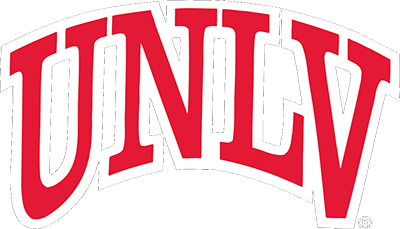Las Vegas, Nevada, is well-known for its vibrant entertainment scene, bustling nightlife, and world-famous casinos. However, beyond the bright lights of the Strip, the city offers a unique blend of affordability and quality of life that appeals to a diverse range of residents—from young professionals to retirees. One of the standout benefits of living in Las Vegas is its relatively low cost of living, especially when it comes to housing and property taxes, compared to other cities with similar demographics. In this blog, we’ll take a deep dive into the cost of living in Las Vegas, focusing on housing, utilities, taxes, and other essential expenses.
-
Housing Costs: Affordable Living in a Thriving Market
Home Prices and Trends
The housing market in Las Vegas has seen significant growth over the past decade, but it still offers relatively affordable options compared to other major metropolitan areas. As of 2024, the median home price in Las Vegas is approximately $450,000. While this may seem high compared to national averages, it’s considerably lower than cities like San Francisco ($1.4 million) or Los Angeles ($900,000).
One of the reasons Las Vegas remains an attractive option for homeowners is its wide range of housing options. From luxury high-rises on the Strip to suburban single-family homes and retirement communities, there’s something for everyone. Moreover, the recent trend in new developments and revitalization projects has created a dynamic and diverse real estate market that caters to various lifestyles and budgets.
Rental Market Overview
For those not looking to buy, the rental market in Las Vegas is equally diverse and affordable. The average rent for a one-bedroom apartment in the city center is around $1,300 per month, while a similar apartment outside the city center averages about $1,100. These prices are considerably lower than comparable cities like Denver, Seattle, or Austin, where rents for one-bedroom apartments often exceed $1,500 per month.
-
Property Taxes: A Major Advantage
One of the most significant financial benefits of living in Las Vegas is the low property tax rate. The average property tax rate in Las Vegas is 0.53%, significantly lower than the national average of 1.07%. This is also lower than cities with similar demographics and amenities. For example, Austin, Texas, has a property tax rate of 1.69%, and Denver, Colorado, has a rate of 0.55%. This means that for a $400,000 home in Las Vegas, homeowners can expect to pay around $2,120 annually in property taxes, compared to $6,760 in Austin or $2,200 in Denver.
This low property tax rate is a major draw for both first-time homebuyers and retirees looking to maximize their investment. Lower taxes translate into lower monthly mortgage payments, making homeownership more accessible and sustainable. It also means more disposable income for residents to enjoy the many amenities and attractions the city has to offer.
-
Utilities and Services: Reasonable Costs Across the Board
Electricity and Water
Las Vegas is located in a desert climate, which can lead to higher utility costs, particularly for air conditioning during the hot summer months. However, the average electricity bill in Las Vegas is around $140 per month, which is comparable to, if not lower than, cities with similar climates, such as Phoenix or Dallas. Many newer homes and developments are built with energy efficiency in mind, helping to reduce these costs even further.
Water usage is another consideration in the desert environment. Despite being in a region that faces water scarcity, Las Vegas has implemented effective water conservation measures. The average water bill for a family of four is approximately $40 to $50 per month, which is quite reasonable compared to other western cities.
Gas and Internet
Natural gas costs in Las Vegas are relatively low, with an average monthly bill of about $50. Internet services, depending on the provider and plan, range from $50 to $100 per month. These costs are on par with or slightly below the national average, ensuring that residents have access to essential utilities without excessive expenses.
-
Healthcare: Quality Care at Competitive Prices
Healthcare is an essential component of the cost of living, and Las Vegas offers a range of quality healthcare options. The city is home to several top-rated hospitals and healthcare facilities, including the Cleveland Clinic Lou Ruvo Center for Brain Health and the University Medical Center of Southern Nevada.
The cost of healthcare in Las Vegas is generally lower than in many other major cities. For instance, the average cost of a doctor’s visit is around $120, compared to $150 in Los Angeles or $200 in New York City. Health insurance premiums are also competitive, with many employers offering comprehensive plans that help mitigate out-of-pocket costs.
-
Transportation: Navigating the City on a Budget
Las Vegas is a car-dependent city, and transportation costs can vary depending on your lifestyle. The average price of gasoline is slightly below the national average, at around $4.00 per gallon as of 2024. Car insurance rates in Nevada tend to be higher than the national average, with premiums averaging around $1,800 per year. However, this is still more affordable than in states like California or Michigan.
Public transportation options include buses operated by the Regional Transportation Commission of Southern Nevada (RTC), with a single ride costing $2 and a 30-day pass available for $65. While the city is not known for its public transit system, ongoing investments and expansions are improving connectivity, especially in areas like Downtown Las Vegas and the Strip.
-
Groceries and Dining: Affordable Essentials and Diverse Culinary Scene
Grocery Costs
Grocery prices in Las Vegas are close to the national average. A typical grocery bill for a family of four is about $800 per month. Staples such as milk, bread, and eggs are reasonably priced, and residents have access to a variety of grocery stores, from budget-friendly options like Walmart and WinCo Foods to higher-end stores like Whole Foods and Trader Joe’s.
Dining Out
Las Vegas is renowned for its dining scene, offering everything from celebrity chef restaurants to affordable local eateries. Dining out can be as affordable or extravagant as you desire. A meal at a mid-range restaurant costs around $15 to $20 per person, which is on par with most major cities. For those looking to indulge, the city’s numerous high-end restaurants and buffets offer world-class dining experiences that can fit a range of budgets.
-
Entertainment and Recreation: World-Class Options for Every Budget
One of the biggest perks of living in Las Vegas is the abundance of entertainment and recreational activities available. From the world-famous shows on the Strip to outdoor adventures in nearby Red Rock Canyon and Lake Mead, there’s always something to do.
Local Entertainment
For residents, many of the city’s top attractions offer local discounts. Shows, concerts, and performances often have special rates for locals, making it more affordable to enjoy the best of Las Vegas entertainment. Additionally, the city hosts numerous free events, festivals, and community gatherings throughout the year.
Outdoor Activities
Las Vegas is also a great place for outdoor enthusiasts. The cost of enjoying the great outdoors is relatively low, with access to national parks, hiking trails, and water activities just a short drive away. Annual passes to places like Red Rock Canyon and Lake Mead are reasonably priced, offering year-round access to some of the region’s most beautiful landscapes.
-
Education and Childcare: Options for Every Family
Public and Private Schools
Las Vegas offers a variety of educational options, from public and charter schools to private institutions. The Clark County School District, one of the largest in the nation, serves the city, offering a range of programs and resources. For families seeking private education, there are numerous highly rated schools to choose from, with tuition rates ranging from $5,000 to $15,000 per year.
Higher Education
For those pursuing higher education, Las Vegas is home to the University of Nevada, Las Vegas (UNLV) and several community colleges. Tuition rates for in-state students are competitive, making higher education accessible without the burden of excessive student debt.
Childcare Costs
Childcare is a significant consideration for families with young children. The average cost of full-time daycare in Las Vegas is around $800 to $1,000 per month, which is lower than in many other major cities. Additionally, there are numerous community programs and resources available to support families.
-
Taxes and Fees: A Favorable Environment for Residents and Businesses
No State Income Tax
One of the most attractive aspects of living in Nevada, and particularly in Las Vegas, is the absence of state income tax. This can result in substantial savings for residents, especially those with higher incomes. The lack of state income tax, combined with low property taxes, creates a favorable financial environment that is rare among cities with similar amenities and economic opportunities.
Business-Friendly Environment
Las Vegas also offers a business-friendly environment, making it an appealing location for entrepreneurs and business owners. The city has a relatively low cost of doing business, and there are numerous incentives for companies looking to establish or expand operations in the region.
-
Conclusion: Why Las Vegas Offers Exceptional Value for Residents
Las Vegas is more than just a tourist destination; it’s a city that offers an exceptional quality of life at an affordable cost. With low property taxes, reasonable housing costs, and no state income tax, it’s an attractive option for families, professionals, and retirees alike. Whether you’re considering buying a home, starting a business, or simply looking for a place with a high quality of life and low cost of living, Las Vegas stands out as a top choice.
At Done In ONE Realty, we understand the unique advantages of living in Las Vegas and are here to help you



